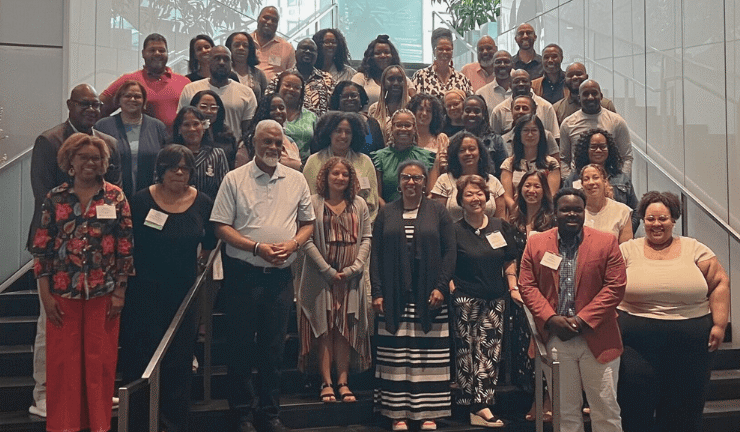The End is Just the Beginning

This is a piece is from CS&A’s summer focus on leadership transition. Check out the full series here.
As independent school search consultants, we are called in when a school needs to change its leadership. There are many reasons for such a change. Some transitions are natural and well planned. A head of school may be retiring after a long tenure or wants to move to a new location for personal or professional reasons. But some changes in leadership are unplanned and, thus, disruptive to the school. Worse, many of these unplanned transitions are avoidable.
Here, we identify the key post-appointment factors that contribute to a successful head/board relationship and suggest some simple but crucial steps to assure that the new head and board have everything going for them as they start out together.
First, some guiding principles. These ideas should underlie all the work of the new head and their board together:
- Build trust. At the outset of the head/board partnership, there must be an assumption of mutual trust. But it takes intentional effort on the part of both the head and the board, especially the board chair, to continue to earn that trust each day. All it takes is one rogue trustee, or a head who tries to keep the board in the dark about something that is “board-level” business and that trust can erode, often irreparably. Trust is the foundation for all successful headships.
- No surprises. Starting out with a mutual commitment between the head and the board chair means a commitment to no surprises. The chair must realize that the head is in a perpetually awkward place, given that the board members collectively are the head’s bosses. So the chair must lean over backwards to assure the head that he/she:
- has the head’s best interests at heart;
- does not expect the head to be perfect;
- is eager to be the best partner possible; and
- can only accomplish this with an open, trusting, and no-surprises relationship.
Likewise, the head, confident that the chair and the board will stay in their appropriate best-practices roles, will feel comfortable sharing with the board the good, the bad, and even the ugly. Especially in the last instance, a “no surprises” mutual understanding will assure the head that, even in the event of bad news, the messenger is not going to get shot.
- We win or lose together. It is impossible for a board/head relationship to go awry without it damaging the school. Mutual understanding, mutual agreement that the school’s best interests are served when the board and the head figure out how to resolve differences, will indeed serve the school well. Do not be one of those schools where you teach the children to behave like adults while the adults behave like children!
- No assumptions. In most instances, a new head will come from another school where he/she has engaged in or observed a board/head partnership — and, thus, arrives at your school with an idea of how that partnership works. Board members, as well, will likely have had an experience with the prior head that conditions them to a certain way of thinking about the functionality of the board/head relationship. But those two assumptions may not align. Therefore, don’t assume. At the outset of the new headship, the head and the board leadership should talk about how they want to work together. They should reach a mutual understanding of the board’s and the administration’s roles — of their shared and independent responsibilities. With that mutual understanding as a foundation, and a relationship built on trust, if one party or the other strays, the other party can gently nudge them back to their proper role.
- Be student-centric. In the adult world of schools, it is sometimes easy to forget that the school is not about adults. When there are disagreements, when there are challenges, the first question should always be: What is in the best interests of the students? Independent schools tend to attract employees and board members who are independent minded. Often the culture of the faculty encourages independence and some degree of autonomy. Often board members are successful individuals who are leaders in their own right and are used to being followed. If it comes to a contest of wills, a strong leader and an independent autonomous faculty or staff member can be like an irresistible force and an immovable object. But when both the force and the object realize that neither of them matters as much as the students entrusted to them, impasses can be avoided and/or overcome.
How do a new head and a board come to the kind of blissful partnership outlined above? The answer is: It’s not easy! You have to work at it. You have to recognize that the job of the board is often focused on different areas of the school than the job of the head. There must be mutual respect and understanding and a willingness to grow together.
We both work as search consultants at Carney, Sandoe & Associates. One distinguishing feature of our firm is that, once an appointment has been made, we shift from search consultants to transition consultants. It is surprising to us how often one of our search client schools fails to take advantage of the expertise that their CS&A consultant(s) can provide post-appointment. Because we are as invested in the success of your new head as you are, we want to do what we can to get things started on the right foot. This is such a critical stage for the success of any new head of school — and, thus, for the health of the school.
Along with the core support we, and all members of our consulting team, provide, some schools want to go farther and engage our firm separately in the areas of board training and executive coaching. A number of our consultants have a great deal of experience in board best practices, governance development, and board-head relationships. We are often called upon to design and lead retreats, to run board training sessions, and to assist in elevating the performance of the board. We have a number of tools that we use, including some wonderful case studies that break the board into smaller groups to discuss topics such as support for the head and his/her family, board and head roles and responsibilities, the challenge of the “parent trustee who can’t separate those roles,” and many others.
In addition, we have a team of executive coaches who are trained and certified and have a formal process for coaching and supporting a school head. Research makes it increasingly clear that heads, especially those who are leading a school for the first time, benefit greatly from an independent coach who can serve as a professional sounding board and help them find success. Good coaches help heads develop greater self-awareness and knowledge, improve communication skills, heighten emotional intelligence, and leverage strengths for their personal and professional benefit as well as the success of their schools.
In all instances, the overall goal is to ensure that schools not only appoint the right school leader for their needs but also that the new head’s tenure gets off to a strong start. When this happens, good things follow for the school community.
Ralph Davison, a former longtime head of school, has been a senior consultant with Carney, Sandoe &Associates since 2006. His work centers on executive search and board/governance consulting with both domestic and international schools and educational organizations. His practice includes work with more 60 clients in North America, Asia, and Europe. Ralph can be reached at ralph.davison@carneysandoe.com.
Skip Kotkins serves as a senior consultant for CS&A, leading senior executive searches and consulting with school leaders on matters of leadership and governance. His consulting work includes board development and strategic planning in more than two dozen states and a number of countries overseas. He has also chaired eight different non-profit boards and served as a board member and officer of both NWAIS and NAIS. Prior to coming to CS&A, Skip spent a career leading a consumer products company and serving on corporate boards. He can be reached at skip.kotkins@carneysandoe.com.








